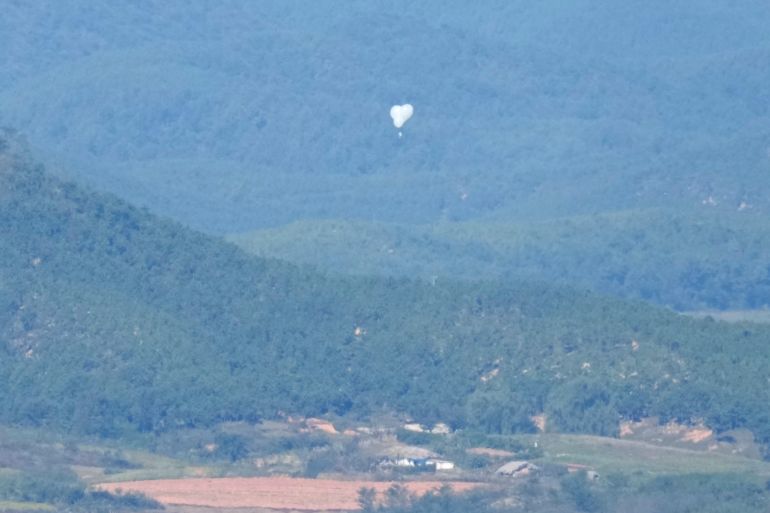North Korean balloon dumps rubbish on South Korea’s presidential compound
Local media report that ballon also carried leaflets ridiculing the South Korean president.
North Korean balloons are seen from the Unification Observation Post in Paju, South Korea, near the border with North Korea, on October 4, 2024 [Lee Jin-man/AP Photo]Published On 24 Oct 202424 Oct 2024
Rubbish carried by a North Korean balloon has landed on South Korea’s presidential compound, authorities have said, in the second such incident in recent months.
South Korea’s presidential security service said in a statement on Thursday that a balloon sent from across the inter-Korean border dumped rubbish onto the compound in Seoul’s Yongsan district, but no dangerous items or materials were discovered.
South Korea’s Dong-A Ilbo and Chosun Ilbo newspapers reported that the balloon contained propaganda leaflets ridiculing President Yoon Suk Yeol and his wife.
The incident comes after Kim Yo Jong, the influential sister of the North Korean leader Kim Jong Un, earlier this week claimed that authorities had discovered and removed “political motivational rubbish sent by the ROK scum”, referring to South Korea’s official name, the Republic of Korea.
“The reckless infringement upon the sovereignty of the DPRK by the ROK military gangsters is a hideous military provocation that can never be pardoned, Kim said, referring to North Korea’s official name, according to a state media report on Tuesday.
“Seoul will have to experience at firsthand so as to know properly how dangerous [of an] act it committed and how terrible and fatal the consequences it brought on itself are,” Kim said, according to a state media report on Tuesday.
Pyongyang has floated thousands of balloons carrying refuse and propaganda leaflets across the border since May in response to propaganda leaflet drops into the North by South Korean activists.
Thursday’s incident marks the second time a balloon has dumped refuse on the South Korean president’s office following a similar case in July, raising concerns about the vulnerability of key South Korean sites in the event of a North Korean attack.
